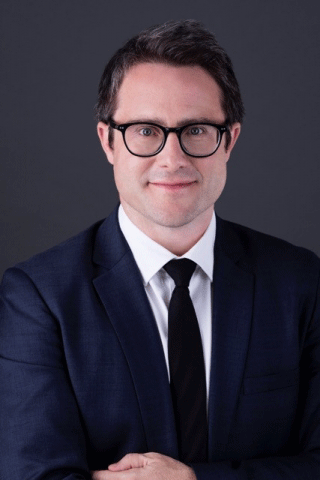In January 2019, Taylor Owen will be joining the Max Bell School of Public Policy. A leading scholar of media, technology and public policy, Owen, will hold the Beaverbrook Chair in Media, Ethics and Communications. Taylor Owen’s research focuses on the policy and governance challenges created by the rapid changes to the digital media and technology environment.

“We are thrilled that Taylor Owen will be joining the Max Bell School. As technologies advance and social media continue to affect our elections and democracies, determining the appropriate public policy response to these challenges is essential. Taylor Owen is at the forefront of these issues and we look forward to working with him to engage policymakers and the public around these important topics,” said Chris Ragan, Director of the Max Bell School.
Recently, Owen spoke to the Reporter about media, technology and public policy, as well as outlining his goals as the newest member of the Max Bell School.
Your research focuses on media, technology and public policy. Why is this research so important in today’s digital age?
We are at an inflection point in how we as a society assess and govern a set of emerging technologies that are transforming our personal lives, our economies and, ultimately, our societies.
For example, taking a set of technologies connected to digital communication (search, YouTube, Facebook, Twitter, and so on), it’s clear that for the past decade they have been largely considered democratic goods. They helped give voice to many excluded from the public sphere, they helped activists organize, and they empowered many who were marginalized from the political process.
The idea that technology was democratizing, combined with a narrative of innovation and economic growth, meant that governments stepped back from governing the digital economy. As a result, online speech was treated differently than offline, taxes weren’t collected, labour laws weren’t enforced and monopolies were allowed to emerge. In short, we enabled an ungoverned space.
This led to tremendous innovation. However, it also led to negative externalities, including the rise of precarious labour in the platform economy, political polarization and radicalization of our public sphere, the undermining of our elections, massive breaches of personal data, increased inequality and the replication of historic biases in our automated systems.
These externalities now demand a serious policy response. As technology rapidly evolves, becomes more complex, and becomes even further enmeshed in our lives (think AI, driverless cars, human augmentation, synthetic media and the domination of global monopolies), this conversation about how we will adapt our governance institutions and our public policy will become doubly important.
What do you hope to accomplish as holder of the Beaverbrook Chair in Media, Ethics and Communications?
As a researcher and public scholar, I hope to grow my work on the social, economic and public policy effects of emerging technologies. I feel strongly that this chair affords the opportunity and space to use an interdisciplinary approach to tackle a set of ethical and moral governance challenges. The grounding of the chair in media and ethics is a critical starting point for a conversation that ultimately needs to engage with our political and economic governance structures.
At an institutional level, I hope to help build the Max Bell School into a bridge for a conversation between scholarship, civil society, industry and government about the intersection of media, technology and democracy.
What are your thoughts on the gap between theory and practice in academia?
This gap is too often too wide. And both sides are to blame. Scholars too often hide behind jargon and disciplinary idiosyncrasies. And practitioners too often dismiss theory and leap from crisis to crisis. The answer is not to merge the two practices, but rather that each must critically engage with the other. This is not always easy.
The challenge for scholars who engage in the policymaking process, as I try to do, is that different stages of policymaking require different forms of engagement. For example, one must be an activist to get a policy issue on the government’s agenda. One has to communicate with a broad audience to get public support for policy action. One must help governments develop the policy itself. Finally, one must rigorously assess the policy implementation. I hope to continue to develop this process of public scholarship at the Max Bell School.
What impact do you hope to have in training the next generation of policy leaders as part of the Max Bell School’s Master of Public Policy (MPP) program?
I strongly believe that there is a critical need for a new type of policy school. A generation of excellent policy schools emerged during, and structured themselves around, the global policy challenges of the industrial era. The Max Bell School’s launch represents a tremendous opportunity to build a new policy school from the ground up and to develop an MPP program customized for 21st century policy challenges. If we get this right, we will equip policy practitioners with the skillset necessary to solve a new generation of complex global policy challenges.
Learn more about Taylor Owen and his appointment to the Max Bell School of Public Policy
